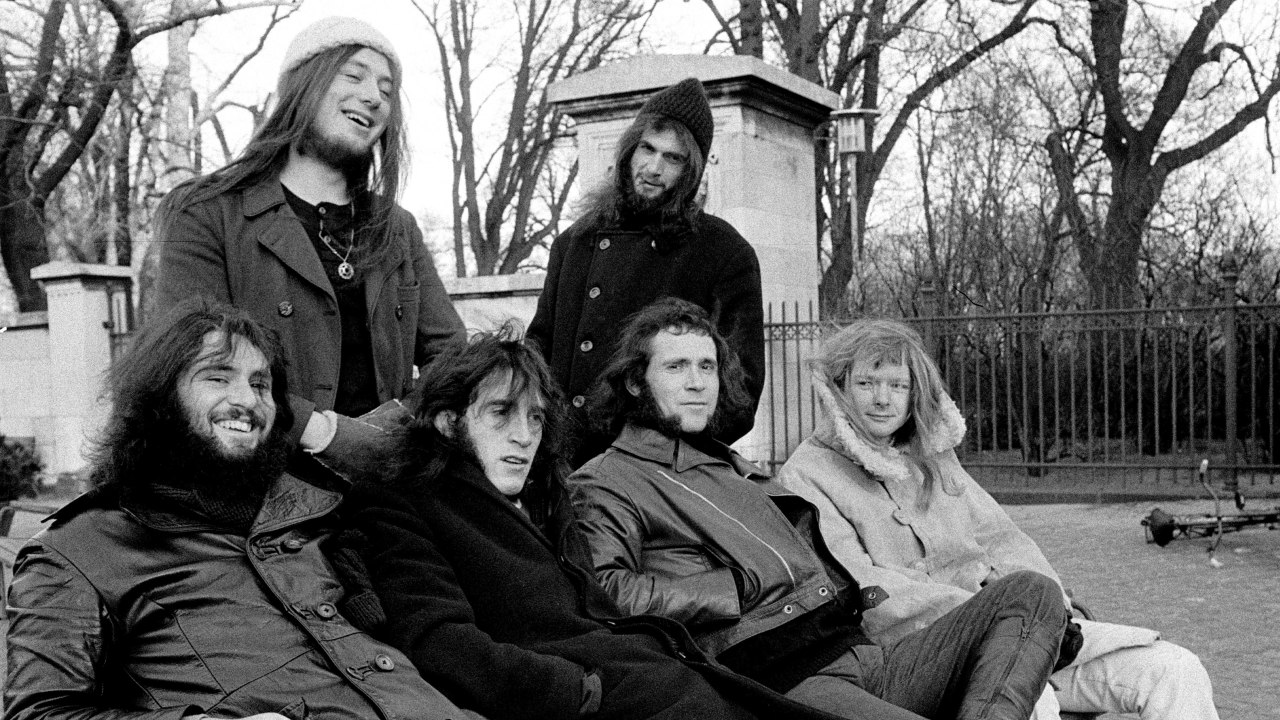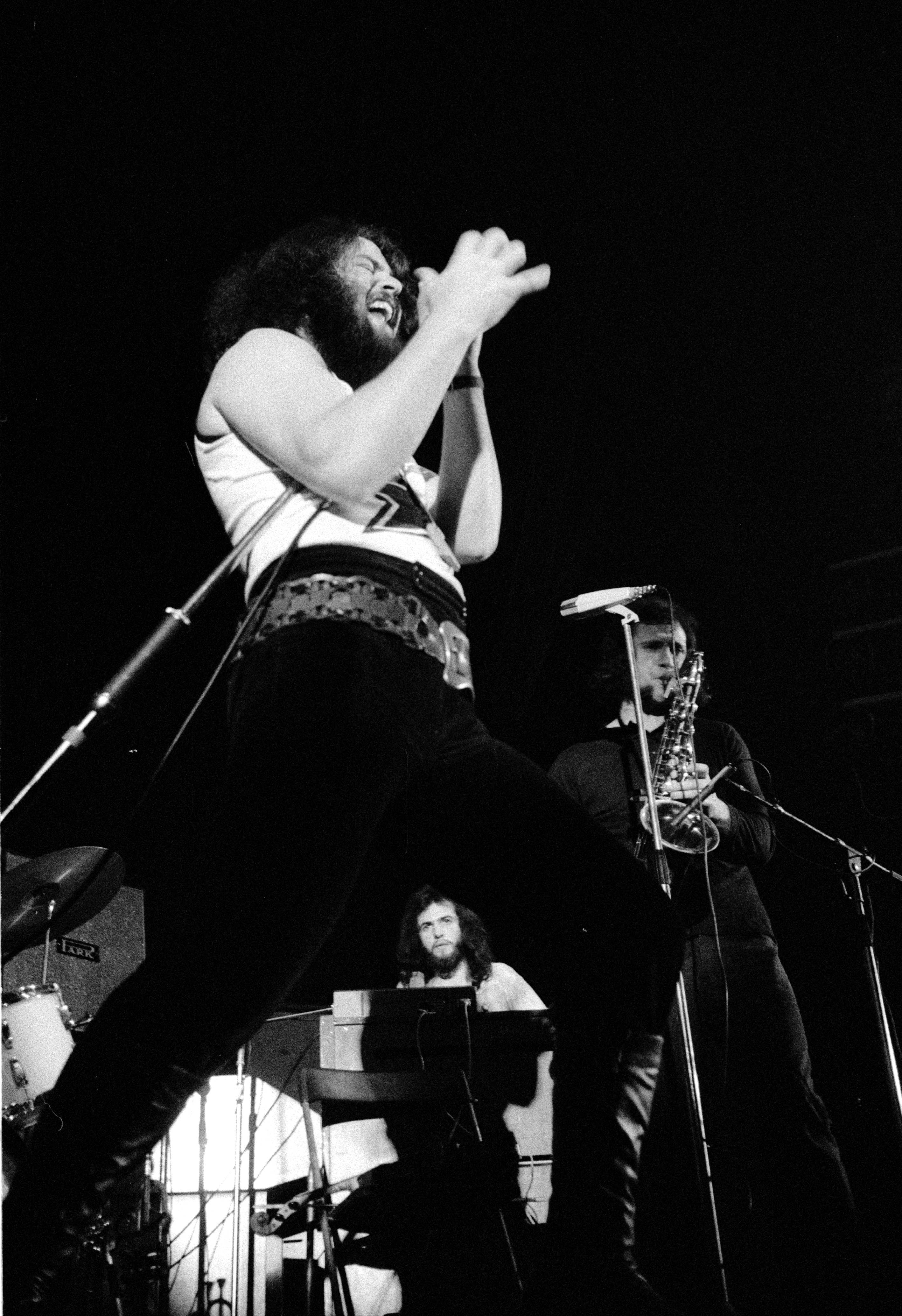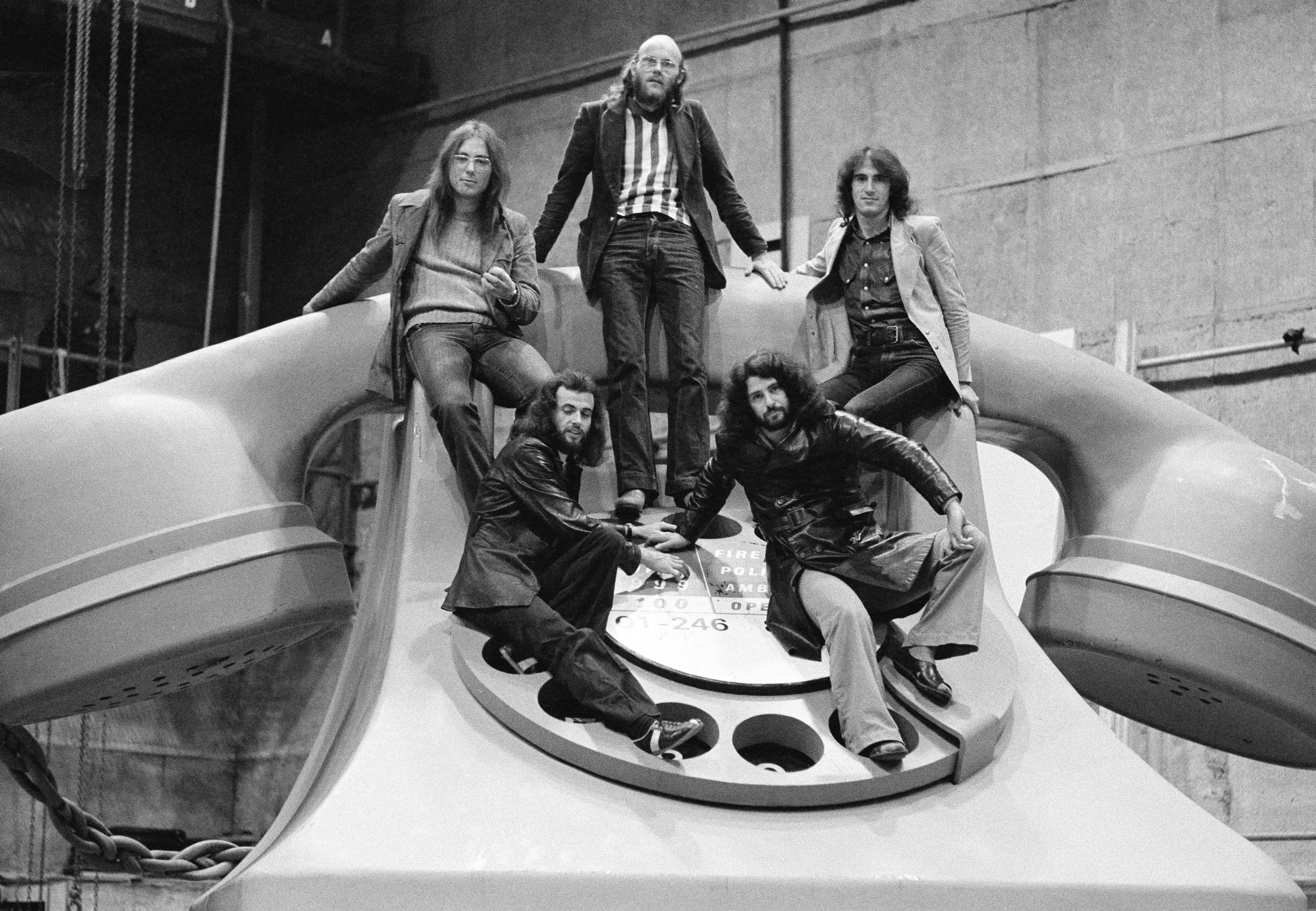Gentle Giant: You look back and think why the hell did we do that?
Gentle Giant's Kerry Minnear and Derek Shulman reveal the idea behind the bootlegs, rarities and curios that made up the Memories Of Old Days set

This article originally appeared in Prog 38
It is a testament to the sustained creative splurge of the 1970s progressive rock scene that so many of the era’s biggest and best bands are currently experiencing a vast wave of renewed interest in the music that they poured their hearts and talents into all those years ago.
In certain cases, it seems that the act of detailed reassessment is both never-ending and self perpetuating, as fans both old and new discover and delight in the sheer depth and density of detail that typified so many of the early prog movement’s greatest musical achievements. This is never truer than when contemplating the diverse and dazzling catalogue of Pompey’s finest, Gentle Giant.
The last few years have seen a steady stream of re-releases and retrospective collections, all geared to saluting the band’s heyday, but in terms of definitively fan-friendly treasure troves, the brand new Memories Of Old Days collection takes some beating. A five-disc set that bulges at the seams with extremely rare or previously unheard live recordings, primitive demos, curious studio snippets and rehearsal tapes, it provides both fresh insight into the feverish artistry that drove Gentle Giant forward and a timely reminder that this was a band that scoffed at rock music’s notional limits.
Perhaps significantly, as keyboard maestro Kerry Minnear explains, Memories Of Old Days was not conceived by the band themselves – unlike 2004’s similarly exploratory Scraping The Barrel collection, which dug deep into the the band’s recorded output in a similar fashion – but by a devoted fan with an ear for dusty obscurities that may otherwise have been left on the cutting room floor.
“Ray [Shulman, Gentle Giant bassist] has a friend at EMI, Hugh Gilmour, whose idea this was. He’s a really nice chap and has a good head on him. As a fan he’d been exposed to lots of bits and pieces that we’d been sharing privately as a band, and also he’d managed to get hold of quite rare things like the rehearsals at Pinewood that I hadn’t heard until I finally put the disc on! I didn’t realise there was a record of that at all. So Hugh really felt that there was a lot of material that was worth putting together. In the course of it all they found some little gems.
“Obviously the quality in some places, you really cry out for something to happen to improve it. I kept wishing that someone would find a button that could be pressed to make everything full and clear. But it’s quite fascinating documentary stuff. It’s for those who are already aware of the group and would be intrigued to find out how things were put together and a bit more about the character of the individual members of the band, I suppose.”
Sign up below to get the latest from Prog, plus exclusive special offers, direct to your inbox!
While new converts to the Gentle Giant experience would be advised to start with classic albums like Acquiring The Taste and The Power And The Glory, those who already worship at the versatile band’s altar may find themselves overwhelmed by the riches on offer across the Memories… set. Covering the period between 1975’s ageless Free Hand and 1980’s oft-misunderstood Civilian swansong, this banquet of odds and sods ranges from clips of Kerry Minnear improvising on the piano as Free Hand’s title track takes shape through to fully-fledged live performances recorded at The Roxy in Los Angeles on the Civilian tour in 1980.

What comes across most powerfully is how consistently fascinating Gentle Giant’s music remains, even when stripped down to its bare components and exposed to the scrutiny that is normally kept distant from the creative process itself. In fact, it is hard to imagine any of the musicians involved not feeling a little uncomfortable at how their tentative compositional efforts are brought under the spotlight.
“I wasn’t really sure whether it should be considered a good idea that we kept a lot of this stuff for posterity’s sake,” says Giant frontman Derek Shulman. “In retrospect, it doesn’t matter. If you want to hear all these little pieces, along with all the mistakes, and hear how the music was written and put together, with the horrible stuff as well as the good stuff, that’s alright with me.
“You do forget how certain things were put together. It becomes one big blur as we get older. Some parts of that period were lots of fun. The rehearsals and live stuff, in particular, you can hear that we embellished our music. The current album was the charcoal sketch for the oil painting that was the stage show and the stage show was always different. That sounds very artsy fartsy but that’s what we were trying to present.”
“It really is quite remarkable the things people hang on to, isn’t it?” says Kerry. “Although some of it is very painful to listen to! Especially when you know what it’s supposed to sound like in the end and what you’re hearing is nowhere near it! People might think that we’re absolutely wonderful and we’d get ideas straight away, but when you hear the laborious attempts to find those ideas, it exposes the human element, where we were chucking out all the rubbish ideas and arriving at the one that was most acceptable. I must admit that it encourages me to keep making music now, because I still keep coming up with all this rubbish but I also know that you eventually do find something worth keeping!”
One great benefit of this new collection of rare material is that the period between 1975 and 1980 may end up being regarded with a greater reverence than before. History may dictate that Gentle Giant will be best remembered for albums like 1972’s seminal Octopus, but even though the band’s later efforts were occasionally erratic and less musically daring than their predecessors, a vast amount of fascinating and creatively audacious music emerged within the second half of the Gentle Giant story. It is also obvious from listening to some of the live material on Memories… that this was a band at the very height of their collective chemistry and powers.
“I think there was a zenith of creativity, when everything came together and we gelled as a band and I think that was between ’74 and ’76,” asserts Derek. “Before then and after then, things were done and experiments were put together, some things worked and some things didn’t. But that period of time, for me anyway, was the best period for Gentle Giant. I think some things were underrated. I believe that Civilian is completely underrated, despite the fact that it was a hard record to make.
“The band was splintered, physically if not personally, but in retrospect there are very strong elements in there. Then again there were some pieces of music from that period which, in hindsight, were embarrassing! Betcha Thought We Couldn’t Do It [the knowing punk spoof from 1977’s The Missing Piece], for one. You look back and think ‘Why the fuck did we do that?’ But we did. So be it.”
If there is one drawback to the comprehensive investigation of the recorded life and times of any band, it is that at some point there will no longer be any more treasure left to unearth. Given the current music industry predilection for box sets, retrospectives, remasters and unencumbered vault-plundering, it seems improbable that Memories Of Old Days will be the last glimpse into the cobwebbed corners of Gentle Giant’s nostalgia cupboard. That said, as die-hard fans can now marvel to a ten-second disembodied Moog solo from Betcha Thought We Couldn’t Do It or pore over the sonically eccentric demos from 1978’s Giant For A Day album, it is hard to imagine quite what else could still be lurking in obscurity’s shadows.

“It’s possible that things will crop up but I’d hate to think what it would sound like!” says Kerry. “A fan sent me a CD of a Hollywood Bowl gig that we did with Black Sabbath, when Phil [Shulman, original Gentle Giant member] was quite vocal about the lack of respect we were being shown by some of the fans at some point, and used a very emotive word to describe them! I wasn’t sure whether I’d remembered it correctly or not, but this fan said ‘I can send you the proof!’ and sent me a CD of that particular gig. So presumably there are live recordings that we’re not aware of, and some of them might be reasonable quality.”
“There actually are a couple of very good live recordings,” Derek confirms. “I’m talking to Ray right now about putting a couple of those things out. There’s some pretty good stuff. There may be scope for a comprehensive box set of the albums too. That would be good to see, I think. I think our integrity, and I hate using such a giant word, has been borne out by our legacy and the fact that it’s still relevant. We never once said ‘Let’s make some music that will still be popular in 40 years!’ We just enjoyed making it and it seems that other people did too.”

Dom Lawson has been writing for Metal Hammer and Prog for over 14 years and is extremely fond of heavy metal, progressive rock, coffee and snooker. He also contributes to The Guardian, Classic Rock, Bravewords and Blabbermouth and has previously written for Kerrang! magazine in the mid-2000s.
